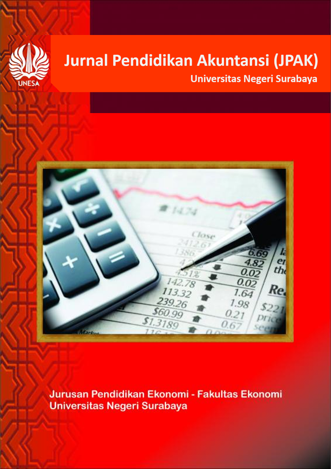Pengembangan Modul Digital Interaktif Perpajakan
DOI:
https://doi.org/10.26740/jpak.v11n3.p228-240Keywords:
Digital module; interactive; taxationAbstract
Understanding of taxation has a high urgency, especially for accounting students because tax calculations and reporting are unavoidable in most sectors in Indonesia. Knowledge and understanding of taxation must be possessed by accounting students to prepare themselves to enter the world of work. In addition, learning in lectures experiences segregation from teacher centered to student centered, both synchronously and asynchronously. This requires innovations for systemic improvements to the components of education, especially learning media. The purpose of this study is to examine the development of learning media in the form of interactive digital modules, namely flipbooks in the Taxation course using the ADDIE model. The modules developed have been assessed by material experts, media experts, and tested on a limited basis among internal students who are taking Taxation courses as many as 31 students. The results showed that the feasibility of the material on the interactive digital module was considered sufficient by the material expert validator. Meanwhile, the results of the media expert's validation showed that the interactive digital module was considered good. The results of the limited test on students showed that the interactive digital module was understood. The assessment is on several aspects, namely the presentation of information, the content of cognition and functionality.
Downloads
Downloads
Published
How to Cite
Issue
Section
License
Authors who publish with this journal agree to the following terms:
- Authors retain copyright and grant the journal right of first publication with the work simultaneously licensed under a Creative Commons Attribution License that allows others to share the work with an acknowledgement of the work's authorship and initial publication in this journal.
- Authors are able to enter into separate, additional contractual arrangements for the non-exclusive distribution of the journal's published version of the work (e.g., post it to an institutional repository or publish it in a book), with an acknowledgement of its initial publication in this journal.
- Authors are permitted and encouraged to post their work online (e.g., in institutional repositories or on their website) prior to and during the submission process, as it can lead to productive exchanges, as well as earlier and greater citation of published work (See The Effect of Open Access).

Jurnal Pendidikan Akuntansi (JPAK) is licensed under a Creative Commons Attribution-NonCommercial 4.0 International License.
 Abstract views: 201
,
Abstract views: 201
, PDF Downloads: 257
PDF Downloads: 257



